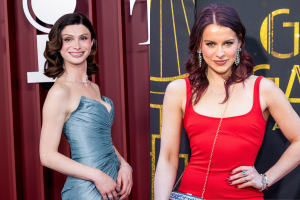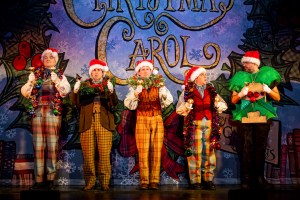63rd Edinburgh International Festival Starts Today
The 2009 Edinburgh International Festival (EIF) kicks off this evening (14 August) with the traditional opening concert at Usher Hall, which this year features a performance of Handel’s Judas Maccabaeus by the Scottish Chamber Orchestra and Edinburgh Festival Chorus. The festival is the parent of the much larger and more chaotic Edinburgh Fringe, which opened last Friday (See News, 7 Aug 2009).
Theatrical highlights include the world premiere of Rona Munro‘s The Last Witch, about the last woman executed for witchcraft in Scotland, a festival residency for Dublin’s Gate Theatre celebrating the 80th birthday of Brian Friel and a radical reimagining of J.M. Barrie’s Peter Pan by New York’s Mabou Mines company.
Also among this year’s 11 theatre productions is Malthouse Theatre Melbourne’s Optimism, after Voltaire’s Candide, transforming the classic satire of enlightenment into “a commentary on the no-worries bravura of Australian swagger”. Meanwhile, Romanian director Silviu Purcarete will present his “wild adaptation” of Faust and the first staged production of Robert Henryson’s epic The Testament of Cresseid receives its world premiere.
The programme also features Diaspora, from director Ong Keng Sen with TheatreWorks and the Singapore Chinese Orchestra, a new work for “voices, percussion, narrator and artisans” from Giorgio Battistelli entitled Experimentum Mundi, and a performance, in Chuch Slavonic and Latin, of the 12th century visionary story Tondal’s Vision by vocal ensemble Dialogos.
The dance programme includes the return of the Scottish Ballet to the EIF with a programme of Ashton’s Scenes de Ballet and the word premiere of Ian Spink’s Petrushka. Scottish-born Michael Clark also returns to the festival (for the first time in 20 years) with a new work based on the music of “rock’s holy trinity” – David Bowie, Iggy Pop and Lou Reed – which subsequently transfers to the Barbican (See News, 12 Mar 2009).
Jonathan Mills, now in his third year as EIF artistic director, said he hoped this year’s theme, exploring “notions of identity, of home and homecoming”, would provoke “very different responses” from the artists involved. “These ideas are explored not just from a Scottish perspective, but also
from that of South East Asians, Europeans and South Africans” he added.
EIF also features a full schedule of opera, dance and classical music. The entire 2009 programme can be found on the EIF website.












